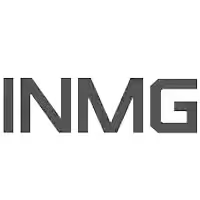Event Tracking Terminology in GA4

As the digital landscape evolves, so too does the need for precise analytics tools that can help businesses understand user behavior. Google Analytics 4 (GA4) represents a significant shift in how we track and analyze events on websites and apps. This article delves into essential terminologies and concepts that surround event tracking in GA4, providing a comprehensive overview for marketers and analysts alike.
Event Tracking Terminology in GA4
Event tracking in GA4 involves monitoring user interactions across various platforms to gather critical data about user engagement. Understanding the terminology used in GA4 is essential for effectively employing this tool. Here are some key terms:

- Event: A measurable user interaction, such as clicks, downloads, or form submissions.
- Parameter: Additional information that can be integrated into an event to provide context, like the value of a purchase.
- Standard Events: Predefined events by GA4 that can be utilized without the need for custom setup.
- Custom Events: User-defined events tailored to specific actions unique to your business or website.
Having a clear understanding of these terms will help marketers harness the power of GA4 to optimize user experience and enhance overall performance metrics. Furthermore, familiarity with these concepts allows for more strategic decision-making, enabling businesses to tailor their marketing efforts based on precise user behavior insights. This level of understanding can lead to more effective campaigns, as marketers can identify which interactions drive conversions and which may need improvement.
What Are Standard Events in GA4?
Standard events in GA4 serve as a foundational aspect of event tracking. They are predefined by Google to capture common user interactions automatically. These events cover a wide array of interactions, making it easier to implement without needing extensive customization.
Some of the most commonly used standard events include:
- page_view: Captured whenever a user views a page on your site.
- scroll: Tracked when a user scrolls down a page to the bottom.
- click: Monitors clicks on links and buttons within your digital property.
Utilizing standard events can save you time and ensure that you gather critical data without the complexity of configuring every single interaction. Additionally, these events are designed to work seamlessly with GA4's reporting features, allowing for immediate insights into user behavior. By leveraging standard events, businesses can quickly assess the effectiveness of their content and make data-driven adjustments to enhance user engagement.
Understanding Enhanced Measurement Events
Enhanced Measurement Events is a feature within GA4 that automates the tracking of certain user interactions without requiring additional code implementation. This feature enables marketers to gather data on a user's journey with minimal setup, significantly streamlining the monitoring process.
Enhanced Measurement Events can include:
- Page views
- Scrolls
- Outbound clicks
- Site search
- Video engagement
This functionality reduces the dependence on IT or development teams, allowing marketers to be more agile in implementing their tracking strategies. By leveraging enhanced measurement, teams can focus on analyzing data rather than spending excessive time on configuration. Furthermore, the automatic nature of these events ensures that marketers capture a comprehensive view of user interactions, which can be crucial for understanding the effectiveness of various content types and user pathways. This level of insight can lead to more informed decisions regarding content strategy and user experience enhancements, ultimately driving better engagement and conversion rates.
Custom Events: How to Track Unique User Actions
While standard events are beneficial, businesses often have unique interactions they need to track that aren’t covered by the predefined options. This is where custom events come into play. Custom events allow for personalized tracking to gain insights into specific user actions within your platform. By leveraging these events, companies can tailor their analytics to better fit their operational needs and user engagement strategies.

To create a custom event, follow these steps:
- Identify the specific user action you want to track.
- Define the event name that you will use in GA4.
- Add relevant parameters to provide additional context to the event.
- Implement the event via Google Tag Manager or directly in your code.
Custom events enable flexibility and allow businesses to gain insights that standard events may miss, providing a more rounded understanding of user interactions. For instance, if a user frequently engages with a particular feature of your app, tracking this as a custom event can help you understand its popularity and inform future development decisions.
Event Parameters: Key Definitions and Usage
Event parameters are crucial for enriching the data you collect through events. These parameters provide context, allowing for a more profound analysis of user behavior. When tracking events, you can include one or multiple parameters that detail specifics about the interaction. This not only enhances the quality of your data but also allows for more nuanced reporting and insights.
Common parameters in GA4 include:
- item_id: Identifies the item in a product listing.
- currency: The currency used for transactions.
- value: The monetary value associated with the interaction.
By effectively utilizing event parameters, organizations can enhance their analytic strategies and surface deeper insights that can inform marketing decisions and strategies. Proper usage allows businesses to link user actions to specific metrics and performance indicators. For example, tracking the item_id alongside value can reveal which products are driving the most revenue, enabling targeted promotional efforts. Furthermore, understanding the currency used in transactions can help businesses optimize their pricing strategies across different markets.
In addition to the common parameters, businesses can create custom parameters tailored to their specific needs, such as tracking user demographics or the source of traffic. This level of customization not only aids in understanding user behavior but also empowers businesses to make data-driven decisions that can significantly enhance user experience and engagement.
Troubleshooting Event Tracking Errors
Even with a robust understanding of event tracking in GA4, issues can still arise during implementation. Recognizing and troubleshooting event tracking errors is crucial to ensuring accurate data collection and analysis.
Common issues may include:
- Missing events: Events not firing when the intended action occurs.
- Incorrect parameters: Parameters not capturing the right data or providing misleading information.
- Duplicate events: The same event firing multiple times, skewing data.
To troubleshoot effectively, use the DebugView feature in GA4 to monitor events in real-time. This tool allows you to see events as they are triggered, making it easier to pinpoint where issues may arise. Regularly review your tracking setup to ensure that everything is functioning as intended.
Another common pitfall in event tracking is the failure to implement proper naming conventions for events and parameters. Inconsistent naming can lead to confusion when analyzing data, making it difficult to derive meaningful insights. Establishing a clear and consistent naming strategy not only aids in organization but also improves collaboration among team members who may be analyzing the same data sets. Additionally, consider documenting your event tracking setup in detail. This documentation can serve as a reference for future troubleshooting and can help onboard new team members more efficiently.
Furthermore, it’s essential to keep an eye on the broader context of user interactions. Sometimes, events may not fire due to user behavior that deviates from expectations, such as users abandoning a page before an event can be triggered. To mitigate this, consider implementing fallback mechanisms or alternative tracking methods, such as using session recordings or heatmaps, to gain deeper insights into user interactions. These supplementary tools can provide a more comprehensive understanding of user behavior, helping to identify potential gaps in your event tracking strategy.

As a Google Ads expert, I bring proven expertise in optimizing advertising campaigns to maximize ROI.
I specialize in sharing advanced strategies and targeted tips to refine Google Ads campaign management.
Committed to staying ahead of the latest trends and algorithms, I ensure that my clients receive cutting-edge solutions.
My passion for digital marketing and my ability to interpret data for strategic insights enable me to offer high-level consulting that aims to exceed expectations.
Google Partner Agency
We're a certified Google Partner Agency, which means we don’t guess — we optimize withGoogle’s full toolkit and insider support.
Your campaigns get pro-level execution, backed by real expertise (not theory).

4.9 out of 5 from 670+ reviews on Fiverr.
That’s not luck — that’s performance.
Click-driven mind
with plastic-brick obsession.
We build Google Ads campaigns with the same mindset we use to build tiny brick worlds: strategy, patience, and zero tolerance for wasted pieces.
Data is our blueprint. Growth is the only acceptable outcome.














